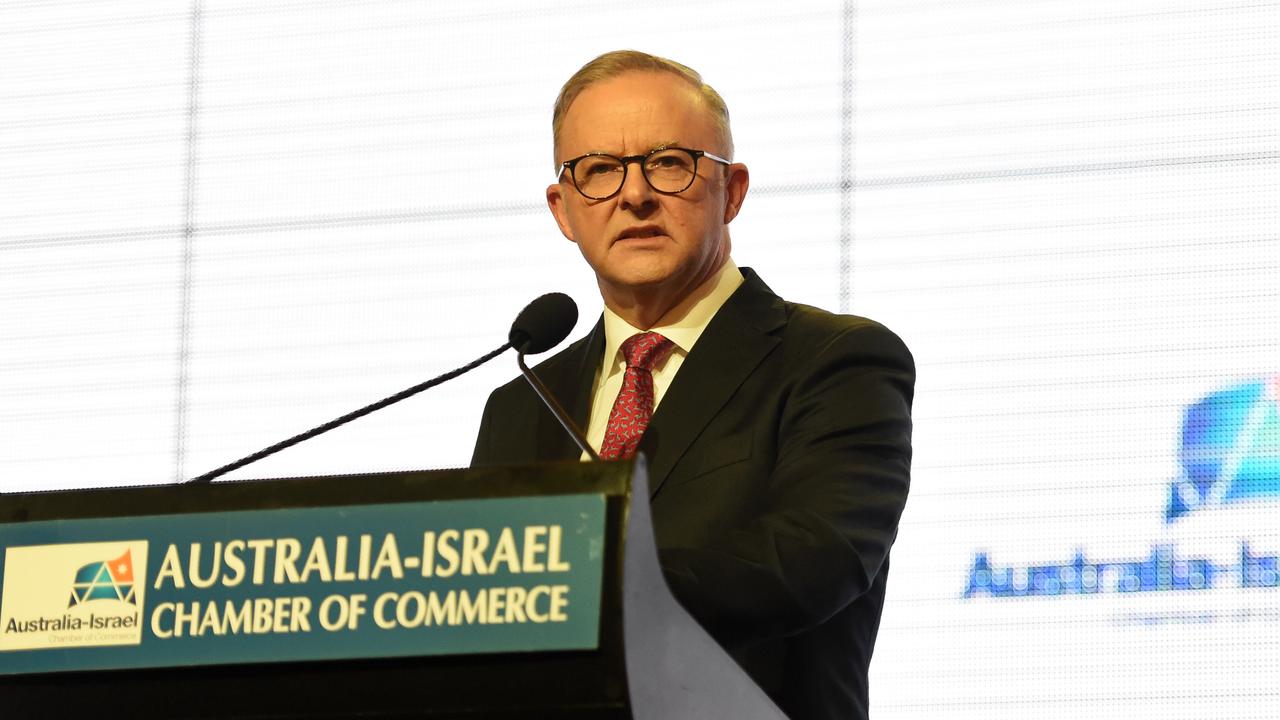More Aussies paying tax swells budget surplus to $19bn in May
Fresh figures have added to the growing confidence that the budget is set to deliver a surplus for the first time in 15 years.
Confidence the federal government will deliver the first surplus in more than a decade has been bolstered as soaring tax revenue swells the budget bottom line.
Monthly budget figures, released by the Finance Department on Friday, show that at the end of May the budget was in a $19bn surplus, storming well past the $4.2bn forecast for 2022-23.
Speaking to the Australia-Israel Chamber of Commerce, Anthony Albanese lauded the result as an “extraordinary achievement” given the Morrison government had forecast a $78bn budget deficit.
“We are well on track to delivering Australia’s first budget surplus in 15 years,” the Prime Minister said.
“A turnaround from a projected $78bn deficit one year previously to a surplus in excess of the $4.2bn we projected last month is an extraordinary achievement in the face of $1 trillion of debt inherited from the last government.”

Treasurer Jim Chalmers confirmed this week the surplus would be well north of the figure he predicted only in the May budget. He refused to put a figure on it but did say it would be “significantly bigger” than expected.
The improvement in the financial year to date came off the back off a tight jobs market boosting tax revenue higher than expected to the tune of $8.5bn. Payments to May had come up $2bn below forecasts.
Finance Minister Katy Gallagher said the result would help put downward pressure on inflation.
“This will help us to take some of the heat out of the inflation challenge in our economy, rebuild our fiscal buffers and clean up the mess left to us by the Coalition,” she said.
However, AMP Capital chief economist Shane Oliver said the news didn’t come as a shock given the conservative commodity price assumptions in the May budget.

Rich Insight economist Chris Richardson said the figures were a reminder of “how lucky the Lucky Country has been”.
“Conditions have thrown money at the taxman,” he said.
“Partly that’s as war drove up commodity prices, and partly it’s as inflation took money from the punters and placed it into the pockets of the government and of business.”
Mr Richardson said the budget still faced longer-term structural pressures, such as from the National Disability Insurance Scheme, aged care, defence and health.
“It doesn’t change the overall budgetary story – good now, challenging later,” he said.
“But ‘good now’ has been massively underestimated by official forecasters.”



